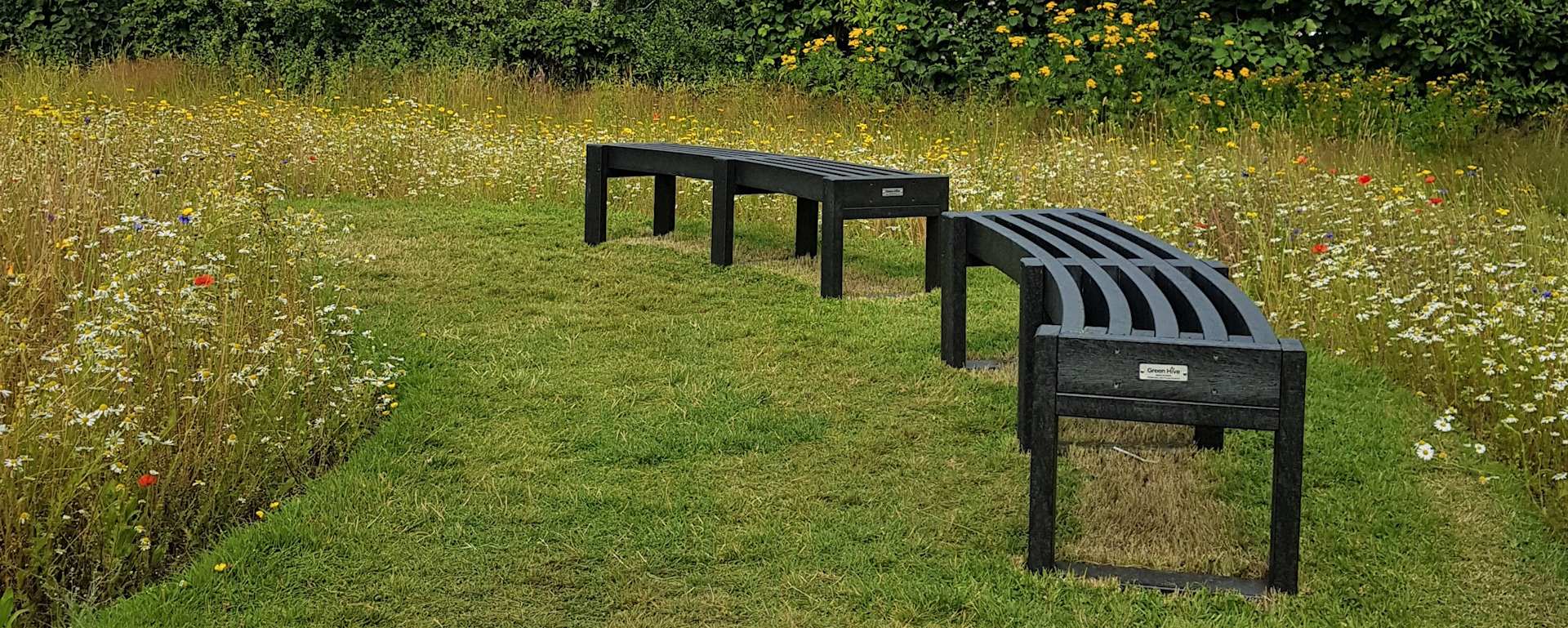Green Hive growth
Published 07/11/2023 by Simon Noble 4 min read
Published 07/11/2023 by Simon Noble 4 min read

Simon Noble and Neil Mapes, Green Hive
With Scotland’s Social Enterprise Day just around the corner (Thursday 16 November) we have a guest blog from Simon Noble, chair and founder of Nairn-based Green Hive.
We approach the end of 2023 as something of a watershed for Green Hive.
As we say a fond farewell to our chief operations officer, Neil Mapes, we also look forward to welcoming our first chief executive officer to lead us through the next chapter.
In a bid to hang to some of Neil’s insightful wisdom, I asked him to outline his three top tips for social enterprises, which I’ll come to shortly.
First, I’d like to pay tribute to the strong calibre of leadership he has provided over the past four years, and for taking Green Hive to the great place it’s at now; a sustainable organisation delivering valuable benefits for the local community.
True to our founding aims, we’ve been working to enhance well-being and the local environment, promote regeneration and civic pride, and boost local employment and skills.
Among our many highlights under Neil’s leadership has been the acquisition of Seaman’s Victoria Hall in November 2022 after carrying out a detailed feasibility study.
Just three months later, we were able to open the hall for community use as a base for a wide range of outdoor activities, e-bike hire, Trike Nairn project and the Green Hive fabrics workshop.
We were also able to get our specialist plastics recycling workshop up and running at Balmakeith Industrial Estate, where people can learn how to identify plastics and create artisan products.
Everything that’s made there helps save waste from landfill and repurposes single waste plastic into a handcrafted item that can be recycled again and again.
The workshop also developed sustainable trading income with outdoor furniture projects such as its plastic benches, with orders through to the end of April 2024.

These activities are all crucial income streams for Green Hive.
And so, to Neil’s top three tips. After some deliberation, he kindly offered the following:
One of the problems social entrepreneurs can have is matters relating to their operations and purpose can often appear too complex and it can be difficult to convey the mission, aims and benefits to people not closely involved.
This may seem a little obvious, but it’s important to explore the full potential of all assets and materials that the social enterprise has at its disposal, whether owned or leased, and find a way to use those to generate income. It might even be a resource that others consider waste but could actually be turned into a product or service.
This is about nailing down your ambition in the numbers and financial projections. It’s often too easy to underestimate the time and difficulty of securing sales, the costs of generating those sales and the general costs of the business. As a social enterprise it’s important to place equal emphasis on both social and financial goals and targets because the latter is what drives your ability to do the former.
Wise words indeed, from someone who knows.
And now to the future.
Recruiting a CEO is a big deal for any enterprise, and for Green Hive it marks an exciting and dramatic point in our development. It’ll be our first CEO and a fantastic opportunity to build on past progress, grow our trading income, reduce our dependence on grant funding, and lead Green Hive into a very exciting future.
This post has now been filled. See our feature on how Green Hive is growing.
Simon Noble, chair of trustees, Green Hive
Green Hive was started as a social enterprise in 2015 by a few local volunteers with a small Deprived Area Fund grant from the Highland Council’s Employability Team. It’s led by a board of eight trustees representing 96 members and achieved charity status in 2017. The organisation now employs five people with three current vacancies and more to come in 2024.
So far in 2023, 197 Green Hive volunteers have worked 2,035 hours across 173 environmental improvement events.
HIE has supported Green Hive for the past three years and helped the Green Hive community workshop to acquire and repair specialist plastics recycling machines as well as helping them to keep the Seaman’s Hall in community ownership via asset transfer.